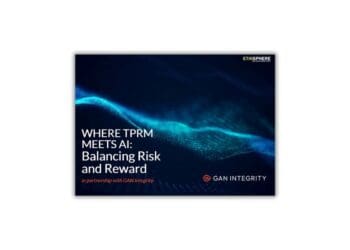Fusion Risk Management’s Kim Hirsch has been advising clients on pandemic planning and business continuity management nonstop since the outbreak of COVID-19. Here, Kim discusses preparedness, quarantine-related issues and the critical risks businesses are facing currently.
What are the most critical business risks you are seeing and hearing from customers or prospects? Workforce disruptions? Supply chain disruptions? Other? What are you recommending in each case?
I think supply chain disruptions are a little more front-of-mind right now because businesses don’t have firsthand information or control around their vendors. They know what they are being told, but not necessarily everything that they would want to know. Right now, we’re being told that supply chains are solid, but they are also slowing down.
Example: Amazon saying they will prioritize household and medical items because of a demand surge, so other shipments are slowing down. Another example: People are told that there are plenty of groceries in the supply chain, but they go to the store and see empty shelves.
I think that workforce disruptions will rise in importance over the next couple of weeks. Right now, a lot of people think that the infected numbers are artificially low because of a lack of COVID-19 testing. So, we don’t have a good picture of what’s to come. Many experts think that there will be a surge in people being sick, if not diagnosed, over the next two or three weeks. If that is true, then absenteeism will rise, and I would think that we’d see more media coverage about that topic, as opposed to the current (and proper) emphasis on social distancing.
What can risk managers be doing – on a triage basis – if they were unprepared for the pandemic?
Trying to plan now is not ideal, but it is better than no plan at all. They should be gathering information on their current situation, try to anticipate upcoming impacts and solidify their understanding of what part(s) of their operations are most critical to maintain during this crisis. It is likely that a lot of businesses will not be able to operate as usual because of things like increasing absenteeism (due to sickness, caring for the sick, child care circumstances and fear of going out), so businesses need to get a plan in place first that supports how they will continue to provide essential services. Services that aren’t essential can be put aside so that the workforce that you have can be focused on what’s most important. The time to cross-train those people is now.
What are the BEST examples of preparedness, resilience, etc., that you have seen so far during the crisis? And what best practices can we walk away with and apply to other industries?
Businesses that had pandemic plans in place that assumed that it might be a long-lasting crisis are best positioned right now. This is unlike anything any of us working today have ever witnessed before, but the thing I’ve really observed is that the pandemic is following a trajectory that a lot of experts predicted that it would – should such a thing happen – and traditional pandemic planning used those predictions as a basis.
Companies that had already made decisions and set them into policy or plans – when to tell your travelers to come home, when to tell your employees to work from home, ensuring that your IT systems could support work from home, etc. – are the best positioned. My best advice to anyone just trying to figure it out now is to rely on the advice that has been out there and is being successfully put into practice. (My company has just produced a “Pandemic Toolkit” to help organizations in get started.)
Are businesses properly concerned about the physical health of their workforces? Can you cite some examples of what your clients are doing to cope with “shelter-in-place” orders and other quarantine issues?
I think businesses are properly concerned; if they weren’t, they are now after the past few days of this fast-moving situation. Companies that can let their employees work from home are doing so, and the infrastructure needed to support that (internet capacity, online tools functioning under high demand) is holding up so far. I have seen other companies do a lot of the same things my company is doing – providing tips and resources to help them stay home and stay safe.
Working from home full-time is not like doing it occasionally or even one or two days a week. I made that shift from office to home a few years ago and learned quickly that I had to set up a home office, not just work from the comfiest chair in my house. My sister rarely works from home and knows that she’s making a big pivot. I just heard from her how she had to get a wrist rest and mouse rest because her desk at home is too high to use comfortably all day. That’s something companies need to think about. We’re in this for the long-haul.
What resources do employees need to work successfully? I think it’s also important to realize that some of your employees really love the office environment and/or are extroverts. Think about using tools at your disposal, like video meetings, to set up opportunities for them to socialize. Don’t worry about it seeming like you are letting them “slack off.” You are asking them to adapt and be highly productive under trying circumstances. A little extra support will go a long way.
Are businesses properly concerned about the economic health of their employees?
This question is much more difficult. Any employer with an hourly staff needs to determine what they can and should do for their employees. Some have extended paid sick time or crisis funds or other ways of helping when they can’t pay an employee’s entire wage when they aren’t working. Other businesses and employers cannot afford to do so.
Perhaps the best response I have seen to this situation came from the state of Minnesota recently, when the governor closed all public gathering places for two weeks (bars, restaurants, gyms, movie theaters, etc.). The state was lucky enough to have a billion-dollar surplus and a governor determined to use some of it for this very thing. So, at the news conference where he announced the closings, he also announced that they would waive the waiting period for unemployment benefits to start and people could apply online immediately. Thirty-one thousand people signed up in the first day or two. This is the kind of thing that is bigger than any one business.
What are the most significant supply chain disruptions you are seeing from your customers? How are they dealing with the disruptions?
Right now, we aren’t really seeing much from our customers that wasn’t already in flight. Those who need supplies from China had a disruption, and they have told us that things are starting to normalize. Of course, this assumes China doesn’t have a second wave of the virus hit, which could very well happen. Most clients have been able to wait out the problem so far. A longer-term solution would be to source supplies from more countries/regions, but that would be difficult in this unprecedented time. Going forward, a likely lesson learned will be that just-in-time production and low supply levels leaves everyone with too much risk. Hopefully, this will be a silver lining: After the crisis is passed, new and less inherently risky forms of doing business and manufacturing will evolve.
Any other observations from the front-line of risk management?
The scope of the pandemic is something few could have anticipated, and it may last for months. People are okay with disruption if they feel that it is short-term, and they probably don’t know anyone who has died. Once that starts to change – more people see that this is a long-term fight and know people personally impacted – we are going to see more changes and, probably, most won’t be for the better.
For me, the most important part of what we’re talking about is preparing for that really long haul. Companies should be supporting their employees in setting up offices with the equipment that they need so that people can remain productive (for example, I really need two larger screens to do work. If I only had my laptop screen, my productivity would fall). They should also be doing a lot of workforce shortage planning, figuring out how to cover essential operations when people do start to get sick in larger numbers. Luckily, they are still saying that 80 percent of people will not have severe symptoms, so things won’t break down entirely, but people will still be out sick and still out to care for others who are more severely ill.



 Kimberly D. Hirsch is Advisory Team Lead at
Kimberly D. Hirsch is Advisory Team Lead at 








